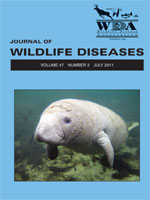The innate immune system is the first line of defense against pathogens, and it plays a fundamental role in coordinating a protective immune response in birds. Although many studies have evaluated avian immune responses in the laboratory, many fewer studies to date have done so in a field setting. To gain insight into interspecific differences in immune function in wild birds, we used a field-deployed in vitro microbicidal assay to measure constitutive innate immunity of whole blood collected from three common passerines in suburban Chicago, Illinois, in 2009. Data from one microbe, Escherichia coli 8739, revealed that American Robins (Turdus migratorius) had significantly lower bactericidal capacity than House Sparrows (Passer domesticus) or Gray Catbirds (Dumetella carolinensis). Bactericidal capacity for E. coli 8739 tended to be lower for birds infested with chewing lice than those without chewing lice, and male birds had lower microbicidal capacity than females in the case of Staphylococcus aureus. This study demonstrates the potential for field-deployable eco-immunologic tools to inform infectious disease ecology research.
How to translate text using browser tools
1 July 2011
FIELD INVESTIGATION OF INNATE IMMUNITY IN PASSERINE BIRDS IN SUBURBAN CHICAGO, ILLINOIS, USA
Jessica Girard,
Tony L. Goldberg,
Gabriel L. Hamer
ACCESS THE FULL ARTICLE

Journal of Wildlife Diseases
Vol. 47 • No. 3
July 2011
Vol. 47 • No. 3
July 2011
disease resistance
ecologic immunology
microbicidal capacity
passerine birds




